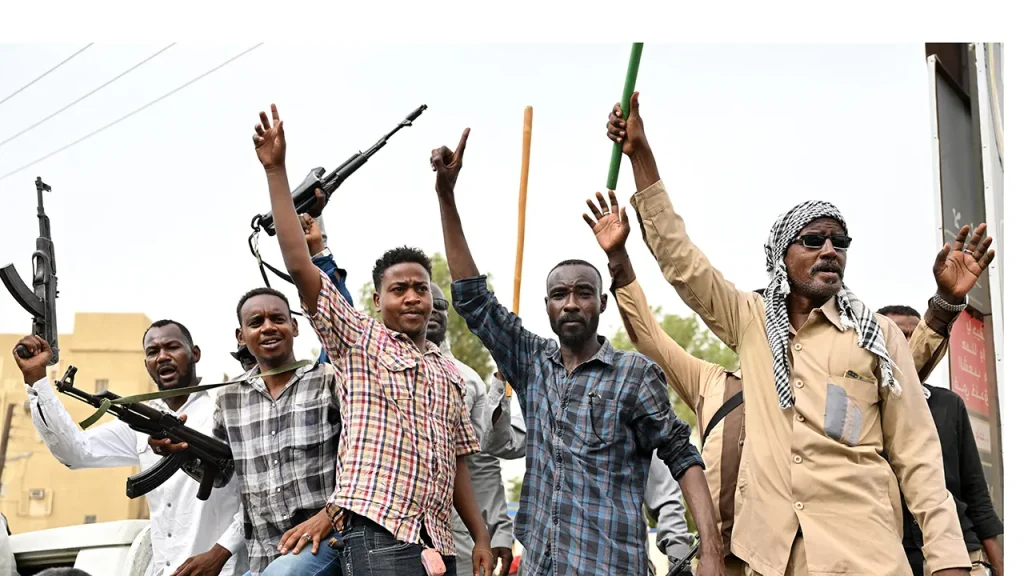Trump’s Peace Mission Takes Root in War-Torn Sudan
In a remarkable display of diplomatic engagement, President Donald Trump’s administration has accelerated peace efforts in Sudan, where a devastating 30-month conflict has claimed tens of thousands of lives and displaced approximately 14 million people. The White House has made ending this catastrophic war a priority, with a State Department spokesperson emphasizing, “Ending wars is a priority for President Trump, and the United States remains focused on working with our partners and other stakeholders to resolve the crisis in Sudan.” This renewed American commitment follows stalled negotiations during the previous administration and represents part of a broader pattern of Trump-led peace initiatives worldwide. The conflict, fought between the Rapid Support Forces (RSF) militia led by Gen. Muhammad Hamdan Dagalo (known as Hemedti) and the Sudan Armed Forces (SAF) under Gen. Abdel Fattah al-Burhan, has effectively split the country in two, with humanitarian consequences that the United Nations describes as “the largest such crisis in the world.”
The pace of peace negotiations has dramatically intensified in recent weeks, spearheaded by the formation of an international Quad comprising the United States, Egypt, Saudi Arabia, and the United Arab Emirates. White House Senior Advisor for Arab and African Affairs, Massad Boulos, fresh from brokering a ceasefire in the 30-year conflict between the Democratic Republic of the Congo and Rwanda, has emerged as a key figure in these efforts. His diplomatic tour included critical meetings with Egypt’s Foreign Minister in Cairo and consultations with the Arab League, where he reported promising developments: “Both parties have agreed in principle, and we have not recorded any initial objection from either side. We are now focusing on the fine details.” This flurry of diplomatic activity suggests a breakthrough may be within reach, though the situation remains volatile with fighting continuing on the ground.
The urgency of these peace efforts has been heightened by the recent fall of El-Fasher city and the broader Darfur region to RSF fighters, a development that Boulos warned could have “dangerous and worrying consequences in terms of partition.” This military shift has effectively cut Sudan in two, prompting UN Secretary-General Antonio Guterres to declare that the war is “spiraling out of control” and call for an immediate ceasefire. Mariam Wahba, a research analyst at the Foundation for Defense of Democracies, characterized the fall of El-Fasher as “a defining moment in Sudan’s brutal civil war” that “marks the militia’s full control of the Darfur region and leaves Sudan effectively split in two.” The strategic implications of this territorial control add complexity to peace negotiations while simultaneously making them more urgent.
The humanitarian catastrophe unfolding in Sudan has reached staggering proportions, with the United Nations reporting that “over 21 million people across Sudan are facing high levels of acute food insecurity.” Particularly alarming is the confirmation of famine conditions in El-Fasher and Kadugli in South Kordofan, where trapped families have resorted to consuming leaves, animal feed, and grass to survive. Evidence of atrocities has also emerged, with the Yale School of Public Health’s Humanitarian Research Lab releasing satellite images showing “earth disturbances consistent with mass graves” and evidence of “body disposal activities” in El-Fasher following its capture by RSF forces. These horrifying humanitarian conditions have added moral urgency to the diplomatic push for peace.
While details of the proposed peace agreement remain confidential, sources indicate that the U.S.-led negotiations are advancing toward a three-phase solution. This would begin with a three-month humanitarian truce to allow aid delivery to starving populations, followed by a permanent ceasefire and eventually a transition to civilian leadership. White House Press Secretary Karoline Leavitt confirmed the administration’s commitment, stating, “We remain committed to working with our international partners, including Quad members — Egypt, Saudi Arabia and the UAE — as well as others to lead a negotiated peace process that addresses both the immediate humanitarian crisis and the longer-term political challenges.” She acknowledged the complexity of the situation after consulting with Secretary Rubio, noting that “the administration is very much engaged” in frequent communication with Arab partners.
The outcome of these peace efforts in Sudan carries significant geopolitical implications that extend far beyond the country’s borders. As Wahba warned, “For Washington, the stakes in Sudan are rising by the day. The more time the RSF has to cement its control over Darfur and push toward Khartoum again, the harder it will become to prevent the country’s permanent collapse.” The situation represents not only a humanitarian imperative but a strategic challenge that will “shape the balance of power across the Horn of Africa and signal to America’s adversaries whether the United States still has the will to confront instability before it spreads in this critical region of the world.” As negotiations continue under intense diplomatic pressure, the Trump administration appears determined to add Sudan to its growing list of international peace achievements, potentially ending one of Africa’s deadliest current conflicts and demonstrating America’s renewed diplomatic influence in regions long plagued by seemingly intractable warfare.


